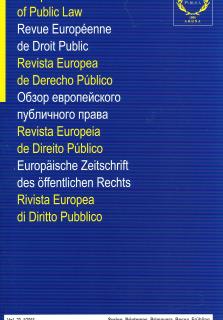
Global Administrative Order
Romania
The globalization phenomenon has substantially transformed the state’s role, and its sovereignty took on, during the past years, new meanings and dimensions. Therefore, the sovereignty is the instrument through which the national interests connect to the European and to the world interests. The global administrative order does not seek to substitute the sovereignty and the right to decide of the states, but it searches for ways to be an integrator. Romania has developed cooperation relations with different global regulatory bodies with regard to the administrative practice. In view of the EU integration process, both the public international organizations and the private international organizations, while developing their relations with the Romanian public authorities and institutions, they influenced the evolution and modification of the national legislation and administrative procedures. The main areas in which Romania has ratified the international conventions and has taken action towards developing the global administrative order were the environment, the health and the financial sector. In the financial sector, Romania has developed the cooperation with both the World Bank and the International Monetary Fund, aiming at maintaining the macroeconomic stability and at establishing a sustainable economic growth. There is a long history with the IMF in terms of agreements. The latest Stand-By Agreement was concluded between Romania and the IMF for a period of 24 months (2009-2011) and it requires conditionalities referring to both quantitative performance criteria and structural reference criteria.





















